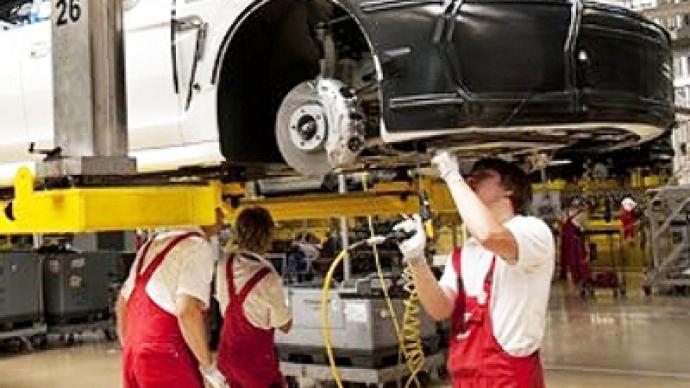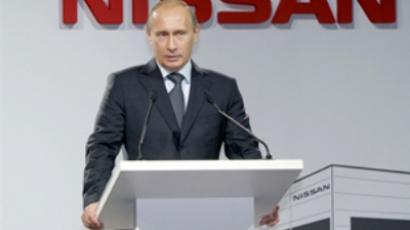New Special economic zone to boost carmakers

Russia’s car producers are expected to get a boost from the creation of a new Special Economic Zone in the Stavropol district of the Samara-Togliatti region announced by Industry and Trade Minister, Viktor Khristenko.
The Government has agreed to allocate $235 million from the federal budget in 2011-2014 to set up an industrial and production SEZ in the Samara region. According to the plans, $222 million is to be spent on construction of on-site infrastructure facilities, $10m is to be used to build off-site infrastructure facilities, and $3m is to be invested into engineering surveys.
The Minister hailed the creation of the new Special Economic Zones (SEZ) as a move which will help boost the viability Russian automaking, building on the experience of a previous SEZ in Elabuga, near Kazan.
“The first project involving a special industrial economic zone in Elabuga has proved effective, so we already have some basic experience. As far as the Togliatti hub, it is special in its own way; here, the share of highly qualified people in the workforce is relatively high. We see the manufacture of car parts as the key element of the strategy to develop the auto industry of the Samara Region taking us up to 2020. This will be a new, high-tech industry in the Russian economy. This plan fits into the national strategy for the development of the auto industry and the corporate strategies of the largest groups being formed in the industry now, Renault-AvtoVaz and Sollers-Fiat. They're currently discussing how to optimize the production of car parts in Samara and Elabuga.”
Deputy Prime Minister Igor Sechin said Prime Minister Putin has already signed a decree to get the ball rolling after calling for the creation of an industrial economic zone in the Stavropol District to help with the AvtoVaz reorganization.
“In response to falling production at AvtoVaz, the Prime Minister instructed the government to consult the authorities of the Samara Region and AvtoVaz shareholders and prepare proposals to reorganize the company and make it more efficient. Along with the reorganization which led to lots of redundancies at AvtoVaz the government has to create a special industrial economic zone in the Stavropol District of the Samara Region to employ up to 20,000 people.”
Minister of Industry and Trade Viktor Khristenko said that the zone will specialize in producing car components – using the skills of an estimated 30 thousand Avtovaz employees affected by restructuring. He said the SEZ will work in conjunction with the existing one at Elabuga.
“As of today, production facilities are planned for three territories, or, geographically, two regions, the Elabuga District and the Samara Region. Elabuga will house Sollers-Fiat final car assembly plants, and the manufacture of car parts will be divided between the Samara and Elabuga hubs. The same goes for Renault-AvtoVAZ; they will use all these hubs. This will make operations more efficient due to the scale of production. All top manufacturers of car parts are planning to establish production facilities here, which are great news.”
Deputy Prime Minister Sechin announced several agreements with the potential investors who are in talks to allocate at least 41 billion roubles into the project.
“While working on this plan, we selected a group of Russian and international investors and entered into 11 deals with them. Investment in these projects will be at least 41 billion roubles. Most of the projects are well underway, and we expect some facilities to begin operations in 2012.”
On the government side, improved infrastructure, lower business costs and tax benefits are being promised Sechin says.
“All special economic zones involve tax breaks. The companies that work in the Samara zone are exempted from paying property tax. But the main thing is that this territory will have new infrastructure, which is being built, in part, with federal funds.”













